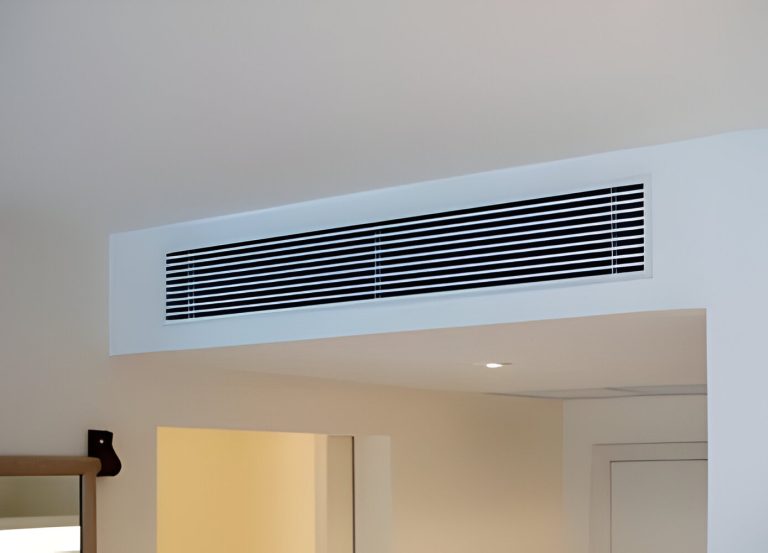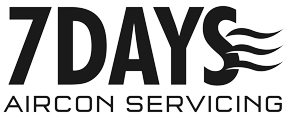
## Introduction
Selecting the appropriate size air conditioner for your space is essential for ensuring optimal comfort and energy efficiency. A unit that is too small will struggle to cool your space adequately, while one that is too large will cycle on and off frequently, wasting energy and leading to uneven cooling. In this comprehensive guide, we will explore the factors to consider when choosing the right aircon size for your space. With a focus on aircon servicing in Singapore, we aim to provide valuable insights to help you make informed decisions and ensure maximum comfort and efficiency in your indoor environment.
In Singapore, where the climate is hot and humid throughout the year, air conditioning is a necessity rather than a luxury. Choosing the right aircon size is particularly crucial in this tropical climate, where the demand for cooling solutions is high. Proper sizing not only ensures comfort but also contributes to energy savings and prolongs the lifespan of your air conditioning system. With professional aircon servicing in Singapore, you can optimize the performance of your unit and enjoy reliable cooling year-round.
In this blog post, we will discuss the importance of selecting the right aircon size and provide practical tips for determining the appropriate capacity for your space. From calculating cooling loads to considering factors such as room size, insulation, and climate, we will cover everything you need to know to make the best choice for your cooling needs. By following the guidance outlined in this guide and investing in professional aircon servicing in Singapore, you can achieve optimal comfort and efficiency in your home or workplace.
### 1. Understanding Cooling Capacity
**Overview:** Air conditioning units are rated based on their cooling capacity, which is measured in British Thermal Units (BTUs) per hour or kilowatts (kW). The cooling capacity indicates the amount of heat that the unit can remove from a space within a given time frame.
**Factors to Consider:** When determining the appropriate cooling capacity for your space, consider factors such as room size, ceiling height, insulation, sun exposure, and the number of occupants. These factors can affect the heat load of the space and influence the size of the aircon required.
**Aircon Servicing in Singapore:** Professional aircon servicing in Singapore includes assessing the cooling needs of your space and recommending the right-sized unit to ensure optimal comfort and efficiency. Technicians can perform heat load calculations and provide personalized recommendations based on your specific requirements.
### 2. Calculating Cooling Loads
**Overview:** Cooling load calculations involve estimating the amount of heat gain in a space from various sources, including sunlight, appliances, occupants, and outdoor temperatures. By accurately calculating cooling loads, you can determine the appropriate size air conditioner needed to maintain desired indoor temperatures.
**Methods:** There are various methods for calculating cooling loads, including the Manual J method, which takes into account factors such as building materials, insulation, and climate data. Other methods may involve using online calculators or consulting with HVAC professionals.
**Aircon Servicing in Singapore:** Professional aircon servicing in Singapore often includes conducting cooling load calculations to determine the optimal aircon size for your space. Technicians use advanced software and tools to assess heat gain factors and recommend suitable units based on your specific requirements.
### 3. Room Size and Layout
**Overview:** The size and layout of the room or space to be cooled are critical factors in determining the appropriate aircon size. Larger rooms or spaces with high ceilings will require higher-capacity units to effectively cool the area.
**Considerations:** When evaluating room size, consider both the square footage and volume of the space. Additionally, take into account any partitions, alcoves, or other architectural features that may affect airflow and distribution of cool air.
**Aircon Servicing in Singapore:** Professional aircon servicing in Singapore includes assessing the layout and configuration of your space to determine the optimal aircon size. Technicians consider factors such as room dimensions, layout, and airflow patterns to recommend the most suitable unit for your needs.
### 4. Insulation and Building Materials
**Overview:** The level of insulation and type of building materials used in your space can impact its thermal performance and cooling requirements. Well-insulated spaces with energy-efficient windows and doors will require less cooling capacity compared to poorly insulated areas.
**Impact:** Insulation helps reduce heat transfer between the interior and exterior of a building, resulting in more stable indoor temperatures and reduced cooling loads. Proper insulation can also improve energy efficiency and lower utility bills.
**Aircon Servicing in Singapore:** Professional aircon servicing in Singapore includes evaluating the insulation levels and building materials in your space to determine the appropriate aircon size. Technicians may recommend additional insulation or energy-efficient upgrades to optimize cooling performance and efficiency.
### 5. Sun Exposure and Heat Gain
**Overview:** Sun exposure can significantly impact the heat load of a space, especially in sunny climates like Singapore. Spaces with large windows or glass facades may experience higher heat gain, requiring larger air conditioning units to offset the additional cooling load.
**Mitigation:** To minimize heat gain from sunlight, consider installing window treatments such as blinds, shades, or tinted glass. Exterior shading devices such as awnings or overhangs can also help reduce solar heat gain and improve energy efficiency.
**Aircon Servicing in Singapore:** Professional aircon servicing in Singapore includes assessing sun exposure and heat gain factors in your space to determine the appropriate aircon size. Technicians may recommend strategies for reducing solar heat gain and improving cooling efficiency, such as installing reflective window films or shading devices.
### 6. Number of Occupants
**Overview:** The number of occupants in a space can affect its cooling requirements, as each person generates heat through metabolism and activity. Spaces with a higher occupancy density will require larger air conditioning units to maintain comfortable temperatures.
**Considerations:** When calculating cooling loads, consider the anticipated occupancy levels and activities in the space. Spaces with frequent occupancy or high levels of physical activity may require additional cooling capacity to offset the heat generated by occupants.
**Aircon Servicing in Singapore:** Professional aircon servicing in Singapore includes considering the number of occupants and their activities when determining the appropriate aircon size. Technicians may recommend larger units for spaces with higher occupancy densities to ensure optimal comfort and airflow.
### 7. Climate and Weather Conditions
**Overview:** Climate and weather conditions play a significant role in determining the cooling requirements of a space. Hot and humid climates like Singapore require higher-capacity air conditioning systems to combat heat and humidity effectively.
**Adaptation:** Air conditioning systems designed for tropical climates may feature enhanced cooling capacity, dehumidification capabilities, and energy-saving modes to optimize performance in hot and humid conditions. These systems are well-suited for use in Singapore and other similar climates.
**Aircon Servicing in Singapore:** Professional aircon servicing in Singapore includes considering the local climate and weather conditions when recommending aircon sizes and configurations. Technicians may recommend systems specifically designed for tropical climates to ensure optimal performance and energy efficiency.
### 8. Occupancy Patterns and Usage
**Overview:** Occupancy patterns and usage habits can influence the cooling requirements of a space. Spaces that are occupied during peak hours or used for specific activities may require higher-capacity air conditioning systems to maintain comfort levels.
**Analysis:** Evaluate the typical usage patterns and occupancy hours of the space to determine the appropriate aircon size. Consider factors such as peak occupancy times, duration of use, and specific cooling requirements for different areas or zones.
**Aircon Servicing in Singapore:** Professional aircon servicing in Singapore includes analyzing occupancy patterns and usage habits

